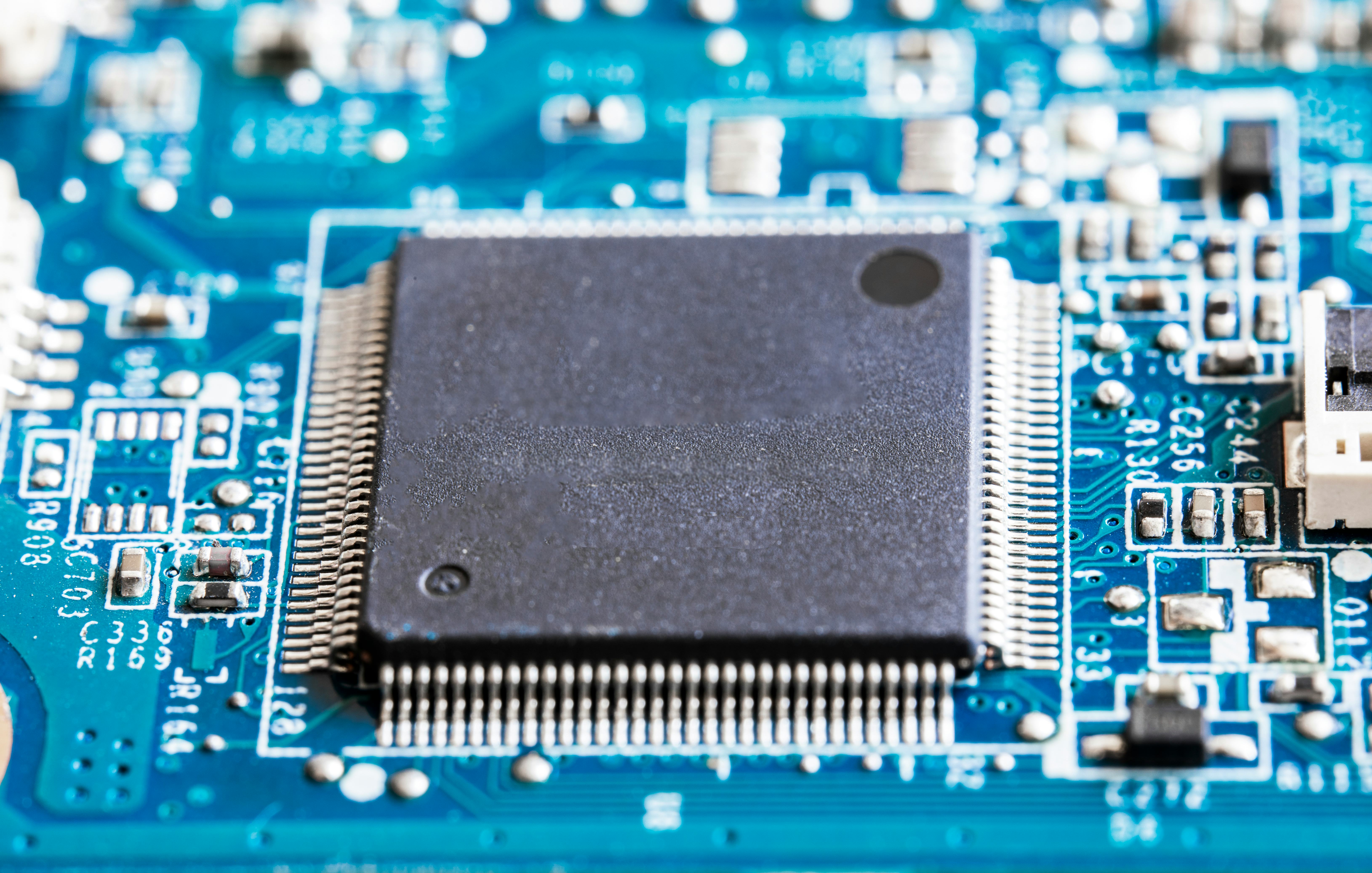
Chemists accidentally invented an unusual new material that could make the next generation of computer chips much faster.
The material is a molecule made of rhenium, selenium, and chlorine, and its called Re6Se8Cl2. Its inventors say that a computer chip made with Re6Se8Cl2 could transfer information twice as fast as one made with silicon. And surprisingly, that’s because it slows electrons down instead of speeding them up.
Columbia University chemist Jack Tulyag and his colleagues published their work in the journal Science.
Electrons and Phonons and Polarons, Oh My!

When Tulyag and his colleagues brought their weird new molecule into chemist Xavier Roy’s lab, they weren’t expecting it to do very much. They just wanted to test the resolution of the Roy Lab’s new microscope on it. But Re6Se8Cl2 surprised everyone by conducting electricity – in fact, its ability to conduct electricity was somewhere between that of a copper wire and an insulator like rubber. The material was, in other words, what physicists call a semiconductor: the backbone of modern electronics.
The best-known semiconductor today is silicon, the 14th element on the periodic table. If you connect a sliver of silicon to an electric current and then peer deep inside it (using your magic subatomic vision, as one does), you’ll see atoms vibrating slightly. All matter does this all the time; it’s what creates heat. And as you watch, you can see all that vibration spawning strange, tiny particles called phonons.
You may be more familiar with photons, the tiny wavelike particles (or are they particle-like waves? spoiler alert: they’re both at once because physics is deeply weird that way) that carry the energy in light. Phonons are like photons, except they carry heat, or “vibrational mechanical energy.”
Let’s get back to our silicon sample because things are happening in there. Electrons are zipping around at mind-boggling speed, as electrons do; after all, electricity is just electrons moving through a material. So it looks like silicon should be conducting electricity super-fast. But when an electron bumps into a photon, it bounces off, pinging wildly in a new direction. All of those scattered, bouncing electrons are moving very fast, but they’re also covering a lot more distance, so it takes them longer than you’d expect to get from point A to point B.
And that’s why Re6Se8Cl2 is such a big deal. Electrons move more slowly through it, so when they bump into phonons, they don’t bounce off — they stick. Together, the electron and the phonon form a new particle called an “acoustic exciton-polaron,” or just a polaron for short. Polarons don’t move as fast through Re6Se8Cl2 as electrons move through silicon — but they take a more direct path, so they get from point A to point B twice as quickly.
Wait, Not So Fast!
Technically, computer chips made with Re6Se8Cl2 could have processing speeds in the femtoseconds, which is about a million times faster than the nanosecond speeds of today’s processors – but there’s a very big catch.
Rhenium, a key ingredient in Re6Se8Cl2, is one of the rarest elements on Earth. Making computer chips out of it is always going to be much too expensive to even think about. But Tulyag and his colleagues say they’ve learned enough from Re6Se8Cl2 and its unusual properties to go looking for other materials that could do the same thing – in much more reasonable quantities.
“There’s a whole family of two-dimensional semiconductor materials out there with properties favorable for acoustic polaron formation,” says Columbia University chemist Milan Delor, senior author of the recent study, in a statement (a two-dimensional semiconductor is one that can be peeled into atom-thin sheets and layered with other materials).







